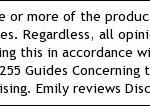This is a sponsored guest post.
It’s not a new thought to look at job ads and wonder if it’s time to change careers. In Australia, the job market is changing faster than a kangaroo on a mission. This is because of things like new technologies and green efforts. By 2025, companies will be looking for skilled individuals who can adapt to new situations, share their knowledge, and use their abilities in creative ways. If you just graduated, changed jobs in the middle of your life, or just want to make your resume more relevant, this post will show you how to get skills that will make recruiters want to hire you. In a way that is friendly to Australians, let’s talk about what skills are in demand, how you can get them, and some beginning tips. Let’s get started! Grab a cup of coffee and come on!
What is the Demand Driver in the Australian Job Market in 2025?
Reports say that the need for skilled workers really increased at the end of the 20th century, and estimates say that hundreds of thousands of new jobs will open up by the middle of the decade. Aged care and nursing make up just over 250,000 jobs in the healthcare field. These jobs are needed because people on this side of the world are getting older and needing more help. On the other hand, it is seen as more important to fill these holes and give workers the skills they need to deal with climate change and digital disruptions.
There is a huge need for professionals in the construction and engineering fields to keep things going smoothly. This is because big infrastructure projects are springing up all over the country, from new highways in Queensland to urban developments in Sydney. Civil engineering is one of the most sought-after jobs, and people who work in it protect our scarce areas while building in a way that is sustainable. As environmental worries get stronger, environmental management becomes an even more important skill to have to make sure that projects don’t damage the land. One skill that helps engineers protect against soil loss in coastal or country areas is knowledge of erosion control solutions. This helps make sure that our famous Australian environments will be around for a long time.
The tech booms, on the other hand, are hard to avoid. AI and data analytics are changing many fields, so hiring managers are now looking for people who can work in both digital and analogue settings. By 2025, there will be a big need for software developers, especially as businesses try to improve their online defences against threats that are appearing all the time. It’s exciting, but if you want to get these good jobs, you have to stay ahead of the curve.
Top Skills That Employers Want in 2025
Let’s look at those skills that are in high demand because they really stand out.
- Computer Literacy: The first one is computer literacy that can’t be changed. It’s time to talk about AI, machine learning, and data science. These are all broad terms for the same thing: turning a bunch of raw data into useful insights. For example, people who work as data analysts are in high demand in banking, retail, and even the government, where they help make smarter decisions based on trends. Python and Tableau are great for people who like to do analysis. They open up a world of options for you.
- Healthcare Skills: Healthcare skills are worth a lot of money. Registered nurses and people who work with the elderly are among the top 10 in their fields. Tens of thousands of new jobs will be created in this area alone. Giving treatments or using health-tech apps are examples of satisfying work that has a compassionate tone. So, if you think you’re ready to nurture, go for it and get trained. That way, you can be sure of a safe and satisfying job right here in Oz.
- Trade Skills: Don’t underestimate these skills any longer—many jobs are available for anyone willing to work. A lot of people need electricians, plumbers, carpenters, and people with a lot of other skills, especially now that green energy is getting more attention. In line with Australia’s net-zero goals, it would be a good idea for a business to hire someone who can take care of solar panels and maybe even wind machines. If you like doing things with your hands, electrotechnology courses, such as those on smart grid technologies and wiring systems, could help you get a job in this fast-growing field. You can take most of these classes at TAFE or even online.
- Soft Skills: You shouldn’t forget about soft skills. People often name analytical thought, resilience, and leadership as some of the most important. Now, the most in-demand skills are adaptability and drive in a world where teams work from home or in a hybrid setting. When you combine these “soft skills” with knowledge about the business, you can’t be stopped. One example is in the field of education: not many people are qualified to teach young children. Along with knowing how to teach, they also need to know how to get kids to be creative when they are looking at screens all day.
- Green Skills: All of these areas need people with green skills. As taking action on climate change becomes more important, the number of jobs in green energy engineering is growing very quickly. Really think about making systems that greatly reduce our carbon footprint. Not only would it be good for the environment, but it would also help your job chances.
How to Start Your Journey of Learning
Well, you know what the situation is, but how can you learn these skills without leaving your job? Australia’s beauty is that its education system is easy for everyone to use.
Online Platforms
Start with online platforms like Coursera or LinkedIn Learning, which offer flexible classes on a wide range of topics, from cybersecurity to coding. Many of them are free or very cheap, and if not, you can work at your own pace while going to the barbies or watching footy.
Vocational Education
There are more organised ways to get to great programmes, like VET (Vocational Education and Training) at TAFE schools. These programmes are very useful, focus on employers, and are often paid for by the government. You can get entry-level work in aged care with a Certificate III in Individual Support. This is a pathway to nursing degrees at places like the University of Sydney and Monash.
Networking and Internships
Meeting new people is your secret cure-all. You can join a business group on LinkedIn or just go to a meetup in your area. One of the best ways to get down to business with people in your field is to talk about secret information over flat whites. And, of course, internships. These are paid ways to learn a trade while getting real-world experience. With bootcamps like those from the General Assembly, techies can get started in software development in just a few months.
Government Incentives
If you want to stick to a budget, keep an eye on government rewards. The Australian Apprenticeships Incentive System gives bonuses to people who start their apprenticeships in priority areas. There are also scholarships for women in STEM fields or students learning in their own region. You can keep track of what you’ve done by setting smaller goals, like finishing one lesson a week, and giving yourself a reward every time you reach one.
To Sum Up: Your Next Step Is Ready It’s not a new thought to look at job ads and wonder if it’s time to change careers. In Australia, the job market is changing faster than a kangaroo on a mission. This is because of things like new technologies and green efforts. By 2025, companies will be looking for skilled individuals who can adapt to new situations, share their knowledge, and use their abilities in creative ways. If you just graduated, changed jobs in the middle of your life, or just want to make your resume more relevant, this post will show you how to get skills that will make recruiters want to hire you. In a way that is friendly to Australians, let’s talk about what skills are in demand, how you can get them, and some beginning tips. Let’s get started! Grab a cup of coffee and come on!
What is the Demand Driver in the Australian Job Market in 2025?
Reports say that the need for skilled workers really increased at the end of the 20th century, and estimates say that hundreds of thousands of new jobs will open up by the middle of the decade. Aged care and nursing make up just over 250,000 jobs in the healthcare field. These jobs are needed because people on this side of the world are getting older and needing more help. On the other hand, it is seen as more important to fill these holes and give workers the skills they need to deal with climate change and digital disruptions.
There is a huge need for professionals in the construction and engineering fields to keep things going smoothly. This is because big infrastructure projects are springing up all over the country, from new highways in Queensland to urban developments in Sydney. Civil engineering is one of the most sought-after jobs, and people who work in it protect our scarce areas while building in a way that is sustainable. As environmental worries get stronger, environmental management becomes an even more important skill to have to make sure that projects don’t damage the land. One skill that helps engineers protect against soil loss in coastal or country areas is knowledge of erosion control solutions. This helps make sure that our famous Australian environments will be around for a long time.
The tech booms, on the other hand, are hard to avoid. AI and data analytics are changing many fields, so hiring managers are now looking for people who can work in both digital and analogue settings. By 2025, there will be a big need for software developers, especially as businesses try to improve their online defences against threats that are appearing all the time. It’s exciting, but if you want to get these good jobs, you have to stay ahead of the curve.
Top Skills That Employers Want in 2025
Let’s look at those skills that are in high demand because they really stand out.
Computer Literacy: The first one is computer literacy that can’t be changed. It’s time to talk about AI, machine learning, and data science. These are all broad terms for the same thing: turning a bunch of raw data into useful insights. For example, people who work as data analysts are in high demand in banking, retail, and even the government, where they help make smarter decisions based on trends. Python and Tableau are great for people who like to do analysis. They open up a world of options for you.
Healthcare Skills: Healthcare skills are worth a lot of money. Registered nurses and people who work with the elderly are among the top 10 in their fields. Tens of thousands of new jobs will be created in this area alone. Giving treatments or using health-tech apps are examples of satisfying work that has a compassionate tone. So, if you think you’re ready to nurture, go for it and get trained. That way, you can be sure of a safe and satisfying job right here in Oz.
Trade Skills: Don’t underestimate these skills any longer—many jobs are available for anyone willing to work. A lot of people need electricians, plumbers, carpenters, and people with a lot of other skills, especially now that green energy is getting more attention. In line with Australia’s net-zero goals, it would be a good idea for a business to hire someone who can take care of solar panels and maybe even wind machines. If you like doing things with your hands, electrotechnology courses, such as those on smart grid technologies and wiring systems, could help you get a job in this fast-growing field. You can take most of these classes at TAFE or even online.
Soft Skills: You shouldn’t forget about soft skills. People often name analytical thought, resilience, and leadership as some of the most important. Now, the most in-demand skills are adaptability and drive in a world where teams work from home or in a hybrid setting. When you combine these “soft skills” with knowledge about the business, you can’t be stopped. One example is in the field of education: not many people are qualified to teach young children. Along with knowing how to teach, they also need to know how to get kids to be creative when they are looking at screens all day.
Green Skills: All of these areas need people with green skills. As taking action on climate change becomes more important, the number of jobs in green energy engineering is growing very quickly. Really think about making systems that greatly reduce our carbon footprint. Not only would it be good for the environment, but it would also help your job chances.
How to Start Your Journey of Learning
Well, you know what the situation is, but how can you learn these skills without leaving your job? Australia’s beauty is that its education system is easy for everyone to use.
Online Platforms
Start with online platforms like Coursera or LinkedIn Learning, which offer flexible classes on a wide range of topics, from cybersecurity to coding. Many of them are free or very cheap, and if not, you can work at your own pace while going to the barbies or watching footy.
Vocational Education
There are more organised ways to get to great programmes, like VET (Vocational Education and Training) at TAFE schools. These programmes are very useful, focus on employers, and are often paid for by the government. You can get entry-level work in aged care with a Certificate III in Individual Support. This is a pathway to nursing degrees at places like the University of Sydney and Monash.
Networking and Internships
Meeting new people is your secret cure-all. You can join a business group on LinkedIn or just go to a meetup in your area. One of the best ways to get down to business with people in your field is to talk about secret information over flat whites. And, of course, internships. These are paid ways to learn a trade while getting real-world experience. With bootcamps like those from the General Assembly, techies can get started in software development in just a few months.
Government Incentives
If you want to stick to a budget, keep an eye on government rewards. The Australian Apprenticeships Incentive System gives bonuses to people who start their apprenticeships in priority areas. There are also scholarships for women in STEM fields or students learning in their own region. You can keep track of what you’ve done by setting smaller goals, like finishing one lesson a week, and giving yourself a reward every time you reach one.
To Sum Up: Your Next Step Is Ready
That’s it, folks. These are the skills that will get you ready for anything that 2025 brings. Australia is full of opportunities for people who are willing to put money into themselves. These opportunities range from digital wizardry to handiwork trades. It’s not just a paycheck; it’s about doing interesting work that pays for making a difference in this great country.
What’s next? Are you looking for something in the area of science or health care? Feel free to leave a message below. You might share your journey or even get answers to your most important questions. Send this to a friend who needs a boost, and let’s move forward to a better future. Cheers to a fresh start!
That’s it, folks. These are the skills that will get you ready for anything that 2025 brings. Australia is full of opportunities for people who are willing to put money into themselves. These opportunities range from digital wizardry to handiwork trades. It’s not just a paycheck; it’s about doing interesting work that pays for making a difference in this great country.
What’s next? Are you looking for something in the area of science or health care? Feel free to leave a message below. You might share your journey or even get answers to your most important questions. Send this to a friend who needs a boost, and let’s move forward to a better future. Cheers to a fresh start!

Hi there! I am Emily Evert, the owner of Emily Reviews. I am 28 and live in a small town in Michigan with my boyfriend Ryan and our two pugs. I have a large family and I adore my nieces and nephews. I love reading memoirs, and learning about child development and psychology. I love watching The Game of Thrones, Teen Mom, Sister Wives and Veep. I like listening to Jason Isbell, John Prine, and other alt-country or Americana music. I created Emily Reviews as a creative outlet to share my life and the products that I love with others.
This post currently has no responses.


















Leave a Reply